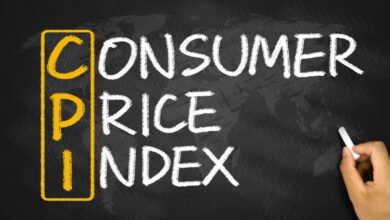Irish retailers face court accused of fake Black Friday deals

Four major nationwide retailers will be in court in January, accused by the consumer watchdog of flouting pricing rules during last year’s Black Friday sales.
And as this year’s Black Friday week sales peak today, the Competition and Consumer Protection Commission (CCPC) chairman Brian McHugh says the agency needs better powers to levy tougher fines against rogue retailers.
He said the commission will today be trawling through Black Friday offers to make sure they are genuine.
The watchdog has also asked consumers and retailers to report suspected fake Black Friday deals that they see either online or in stores across the country.
The CCPC has launched the latest proceedings against a number of retailers that sell electronics, clothing, footwear, furniture and cosmetics.
More cases are expected to follow next year.
The CCPC has declined to name the retailers being prosecuted in the District Court, however.
They are also being prosecuted for breaking pricing laws during the January sales this year.
The CCPC undertook a large number of inspections during Black Friday events last year and during subsequent winter sales over Christmas and in January. It examined both online and in-store pricing.
For each breach of pricing laws, a retailer can be fined up to €5,000. But such fines are inconsequential to major retailers.
In a separate case earlier this year, the District Court ordered Tesco to make a €1,000 donation to charity and pay the CCPC’s legal costs in a case the watchdog successfully took against the supermarket chain for failing to display prices correctly.
“We do think punishments for consumer protection breaches need to be stronger and broader,” Mr McHugh said.
Pause
Unmute
“We have looked for and continue to look for us to get additional powers to bring consumer protection law into line with competition law or data protection law, where there are powers to fine companies millions or tens of millions of euro.”
CCPC research published last week showed consumers are increasingly wary of retailers’ claims of big savings, with just 30pc of them trusting as genuine the discounts retailers claim to offer.
“Black Friday and the idea that the discounts might be fake really frustrates consumers,” Mr McHugh said.
“There will be thousands of them out there today spending millions of euro. If discounts are fake and businesses are breaking consumer protection law, we view it as serious. Prosecution in a court is a serious outcome.
“What we’re calling for is for the options we have to be broadened. Where there’s real serious harm, that should result in much larger fines and our view is that other options are needed.”
Mr McHugh said the investigations last year and in January of this year by its staff saw a mix of good and bad behaviour by retailers.
“Our inspectors saw many excellent examples of accurate sales pricing and sales communications,” he said. “However, we also identified retailers where there was significant and widespread breaches of the law. Those traders are now being prosecuted by the CCPC.”
He said it is imperative consumers trust that the discounts they see are real.
“It’s important in terms of how the wider market works,” he added.
“Ultimately, misleading sale discounts harm consumers and harm competition. Businesses need to able to compete for consumers openly and honestly on price.”
Under consumer law, retailers must provide the “prior price”when displaying a price reduction. They must also base any discounts, such as an amount or a percentage off, on this prior price.
The prior price is the lowest price applied to the product at any time in the 30 days before the discount begins.





